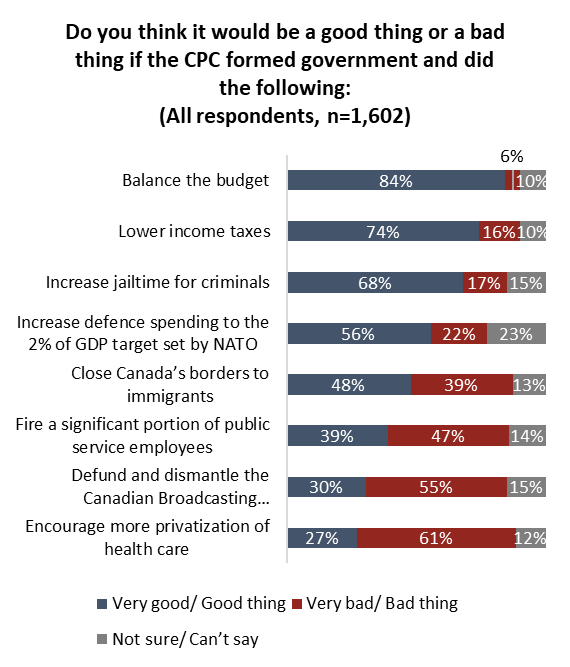In the absence of these important policy proposals, there is evidently some apprehension among Canadians. Half (46%) say they are “fearful” of the CPC forming government, while fewer (35%) anticipate it with hope. A majority (54%) suspect Poilievre and the CPC have a “hidden agenda” that won’t be revealed until after the party wins the elections.
There is also some doubt that a Poilievre-led government can balance the budget and lower income taxes as promised, even if most view them to be “good things”. More than two-in-five (45%) say neither will happen.



People need to stop seeing a “balanced budget” as the top measure of a responsible government.
A country is not a household. They are not going to repo Manitoba if we have too much debt. The vast, VAST majority of countries carry debt, and carrying debt is preferable to austerity measures that gut social programs and supports in service of a balanced budget.
The Canadian govt is the primary creator of Canadian dollars.
When the federal govt runs a deficit of say $1B, that’s a surplus of $1B in the private sector. $1B more spent into industry than collected in taxes. Good times for the private sector.
When the federal govt runs a surplus of $1B, that is a deficit of $1B in the private sector. $1B more collected in taxes than spent. This is an absolute disaster for the economy.
When you consider the above, you can see how ridiculous it is for the federal govt to run a balanced budget or surplus. A balanced budget is a strongly recessionary position, choking off economic growth in the private sector.
Someone has been reading MMT. Nice. 👍
What is MMT?
Modern Monetary Theory. It’s a combination of Keynsian economics with some modern observations.
Thanks!
And won’t somebody think of the private sector! It just doesn’t have enough control over the public good!
I would rather see improved tax brackets to get money back into the economy by forcing the rich to either pay more in taxes, or steal less from the employees thus paying them a fair share (which in turn will actually be spent and fed back into the economy)
Don’t eat the rich, bleed them. Make greed unprofitable in Canada.